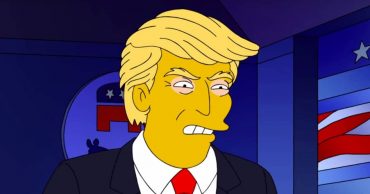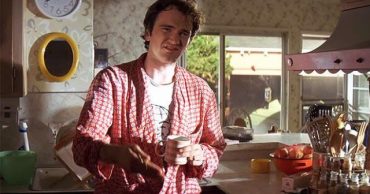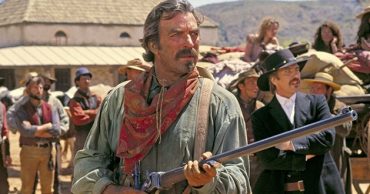
Despite all the attention that the franchise has been getting over the past year, it’s hard out there for a Hellboy fan. They’ve gone from the best possible version of this franchise — celebrated the world over for its unique and gripping setting and eclectic cast of unconventional characters — to a reboot that nobody asked for, and even fewer wanted in the first place.
And it looks like no amount of controversy or fan outrage will deter Lionsgate from the path they’ve chosen. From cleaning house on the first films’ crew to whitewashing key characters, there seems to be no stumbling block that they won’t run into.

Through it all, however, there has been one underlying theme that has informed every decision that Lionsgate has made with this project. For some reason — God only knows why — they desperately want fans to forget about the first two movies. And for the life of me, I can’t figure out why.
Relative to industry juggernauts Marvel and DC, the Hellboy property always been something of a cult property. Lacking the titanic success and sprawling universes of its competitors, it focused on offering a wholly unique experience: an unlikely superhero story told through the lens of Lovecraftian horror. Its characters were offbeat, even for comic books, and everything felt just a little more adult than what you could find elsewhere.

Even with the mounting popularity of superheroes, its transformation into a feature film in 2004 was something of a shock for those that took notice of it at all. Even outside of the big two publishers, there were so many other characters that held a better foothold in the popular consciousness. But del Toro wanted to do Hellboy — a movie that he called just “as personal to [him] as Pan’s Labyrinth” — so we got Hellboy.
And while I can’t say I ever liked it as much as say, Batman or Iron Man, it gave us a wholly unique experience that, just like the comics, you couldn’t find from any of its competitors. Ron Perlman was Hellboy and del Toro’s uncanny vision was the perfect lens through which to witness his madcap adventures. It was part horror, part juvenile slapstick and 100% different.

The first film was only a modest success at the box office, but earned deafening praise from critics and movie-goers, who couldn’t seem to get enough of its colorful world. The sequel, by all accounts, was better than the first: both in terms of the kinds of praise it received and the monetary haul he walked away with. $160 million might be less than some blockbusters’ Special Effects budget, but it paid for the sequel twice over, which in any other world would have resulted in the planned trilogy’s concluding chapter being greenlit by a studio seeing solid returns on a relatively small investment.
And yet, perplexingly, we got the opposite. del Toro was cut from the third movie for reasons that have yet to be sufficiently explained. When Perlman refused to do the movie without him, he was axed as well and the third movie was rebranded as a reboot of the whole franchise. Director Neil Marshall (of The Descent fame) was brought in to replace del Toro and actor David Harbour (from Stranger Things) took over for Perlman.

There’s almost a maliciousness about how the reboot is trying to erase the legacy of its predecessors in order to make room for itself on the public stage. Sure, there are ill feelings when any beloved franchise gets remade by dollar-chasing studio executives, but the situation here feels especially unpleasant. Everybody, from those wheeling and dealing behind the scenes to the ground-level fans who just want to see del Toro’s story conclude properly, seem to be at each other’s throats.
A few — and I must emphasize here that it is an exceptionally rare few — are hopeful that the new direction will revitalize a franchise that, logically, shouldn’t have gotten its shot on the big screen in the first place. David Betancourt of the Washington Post went so far as to call the reboot “the next big R-rated comic-book movie.” Praising the recent image of Harbour in full costume that was released through social media and the perceived upgrade from PG-13 to R, be seemed to believe that this would finally be the dark and gritty Hellboy that we should have gotten in 2004, not the so-called “Heckboy” del Toro gave us.

The problem with this thinking is that it ignores the way that the box office operates. It’s very simple, actually. The more people who can see your movie, the more money you stand to make as a result. And aside from the dedicated fanbase that developed in the wake of the first two movies’ word-of-mouth success, nothing about the reboot suggests that people will be breaking down the theater doors for this one.
Yes, Hellboy was rated PG-13. And while an R-rating theoretically could have made it better, the movie never felt like it was missing out of some vital part of itself by keeping the movie teen-friendly. But being PG-13 did mean that more people — particularly teenagers, who are this genre’s bread-and-butter — could see it in theaters, doubtlessly saving it from box office oblivion. Not only that, but it was headlined by one of the greatest living filmmakers and fronted by one of the greatest living action stars.

Neil Marshall is not Guillermo del Toro. David Harbour is not Ron Perlman. An R-rated movie will not make as much money as a PG-13 one, and those first two Hellboys evidently didn’t even make enough to warrant another sequel. Anybody who believes that somehow this already hated, R-rated reboot with a clearly inferior creative team is going to be a breakout hit that dwarfs its predecessors at the box office is straight-up delusional.
I’ve never had quite the same stake in the franchise as a lot of its fanbase does. I always considered them on the low-end of del Toro movies (but an amazing role for Perlman to sink into). Both are fine movies, and I would have loved to see a third capping them off, but they were never the cornerstones of my identity that they appear to be for many of their more ardent fans.

But everything about this reboot — since the moment it was announced — has been done in the worst possible way. There’s a lot of potential in this franchise, which is more the shame. Although I wish the reboot every success it is owed, I can’t begin to think that it’s going to be the profitable turnaround those in charge of it seem to think it will be.
 Follow Us
Follow Us




